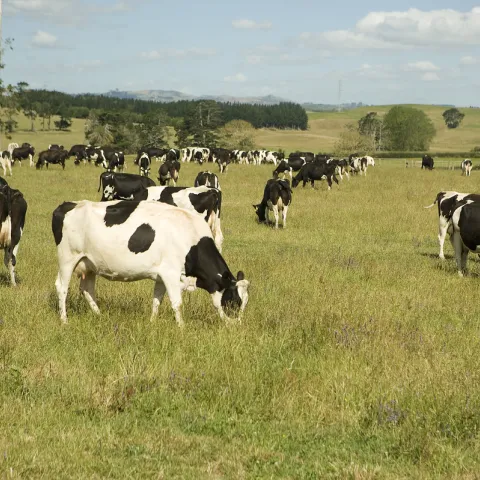Maintaining livestock health is critical for every successful operation. Animals perform at their best when herd health is a priority. From birth to market, it is important to have animal health protocols for each stage of production. Regimes for vaccination and health checks help identify potential problems early and resolve them more quickly, resulting in reduced cost and improved animal welfare.
The Importance of Livestock Health
Now more than ever, producers are pressured to maximize efficiency and profitability to remain viable in current markets. An important part of this is prioritizing herd health. Managing livestock health begins at birth. It is important to minimize stress on both the mother and her young through proper handling. This can be achieved through intentional training with employees to ensure animal welfare and stress-free handling are a priority.
Vaccination protocols are an important piece in preventing future stress that can be caused by sickness and disease. Vaccination protocols can be influenced by climate, regional diseases, parasite pressure, and local welfare standards. Always consult your local veterinarian and professional consultants when designing your vaccination schedule.
Creating and maintaining proper treatment protocols is critical in responding to animal health events in a timely manner. Early detection is important to minimize effects on production and to prevent the spread of the disease. Ensure all employees are properly trained in how to perform health checks and early signs of common sickness. When an animal does become ill, it is important to consult with a veterinarian to determine the cause and the best medical regime to follow. Common best practices include isolation, health checks at frequent intervals, maintaining adequate hydration, and timely administration of medication.
It is also critical to maintain employee training on proper handling and administration of medication. Standard procedures should be reviewed annually, and pharmaceutical inventory should be managed according to regional requirements.
Enhancing Livestock Health with our Animal Health Delivery Solutions
Proper calculation of dosage is critical for animal welfare and treatment efficacy. The best way to ensure proper dosage is to weigh the animal before administering any medication. It is also important to maintain accurate health records for compliance and welfare purposes. Electronic identification and weighing systems help automate data collection, making dosage and record-keeping much easier when dealing with disease.
Advancements in animal health delivery systems are also paving the way for innovation in animal health. From cost-saving through more accurate dosing to combining multiple tools into one easy-to-use device, Datamars Livestock is committed to designing cutting-edge technology that prioritizes animal welfare and meets farmers’ needs for efficiency and profitability.
Leading the Way: Datamars Livestock's Commitment to Best Practice
Our commitment to animal welfare is evident in our technology. Our goal is to provide tools to ensure our farmers can provide high standards of care for their herds. We design and manufacture animal health delivery products that prioritize accuracy, efficiency, comfort, and safety.
When a leading animal pharmaceutical client requested the creation of a two-stage injector, they wanted to minimize the risk of self-injection, administer the product at a precise depth to ensure efficacy, and satisfy animal welfare criteria. Our engineers developed a patented double over-center hinge concept which is the genius behind the Sekurus.
Our state-of-the-art VS Injector is an innovative animal health delivery device that harnesses leading edge product development to cater to customer needs. It combines features for animal and operator safety, compliance, and identification in a modular, flexible design for a variety of applications. We are serious about innovation and making a measurable difference for our farmers.
Maintaining best practice for animal health is important for profitability, efficiency, and animal welfare. From correct animal handling to vaccination schedules to treatment regimes, proper training, appropriate protocols, and precise record-keeping are critical for every operation. It is also important to use accurate, reliable tools in each stage of production to ensure your animals are well cared for and your operation remains compliant.
